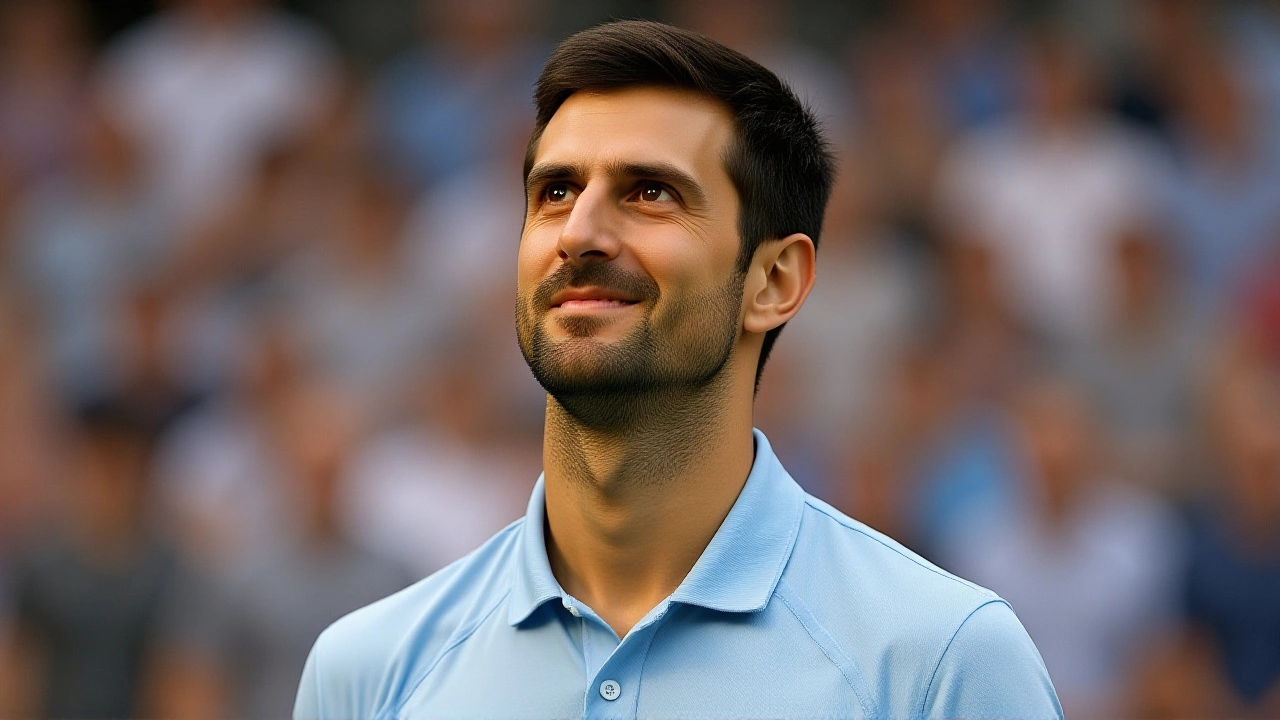When Novak Djokovic, a 37‑year‑old Serbian tennis champion faced Valentin Vacherot, the 26‑year‑old Monegasque qualifier ranked world No. 204 on October 11, 2025, the atmosphere at the Qizhong Forest Sports City Arena in Shanghai was electric. The match, part of the Rolex Shanghai MastersShanghai, China, marked Djokovic’s last push for a record‑extending 41st Masters 1000 title, a goal he hadn’t chased since his Paris triumph on November 5, 2023.
Background: A tournament that promised drama
The Shanghai Masters, organized by Shanghai Tennis Event Management Co., Ltd., ran from September 29 through October 12, 2025. With a 96‑player singles draw and a total purse of $8,800,000, the winner walked away with $1,330,000 and 1,000 ATP ranking points. Djokovic entered the event fresh from a disappointing US Open quarter‑final loss to Alexander Zverev on September 4, 2025, and had not played a competitive match in over a month.
Meanwhile, Vacherot, a former Texas A&M Aggies standout who turned pro in 2019, fought his way through three qualifying rounds. His run was reminiscent of the 2021 Miami Open, where Aslan Karatsev, then world No. 114, reached the final. Vacherot’s breakthrough would become historic: he became the lowest‑ranked finalist ever in a Masters 1000 event.
Match details: Physical strain versus fearless ambition
The semifinal started at 7:30 PM China Standard Time. Djokovic looked sharp at first, but early in the second set he stumbled, falling to his knees after saving a break point. He rose, shook it off, and kept going, yet his movements hinted at lingering soreness. Vacherot, unfazed, struck the ball with a mix of power and precision that left the Serbian legend scrambling.
In the end, Vacherot won in straight sets, 6‑4, 7‑5. The scoreline didn’t fully capture the drama: Djokovic saved four break points in the first set and challenged every rally, but the qualifier’s relentless aggression proved decisive. After the match, the crowd of 10,000 gave both players a standing ovation.
Reactions: Grace under pressure
Djokovic’s post‑match interview was a masterclass in sportsmanship. "I want to congratulate Valentin for reaching his first Masters final," he said, smiling. "Going from qualifications, it's an amazing story. I told him at the net that he's had an amazing tournament, but more so his attitude is very good, and his game was amazing as well." When the reporter pressed about his knee, Djokovic shrugged, "It's all about him. I wish him all the best in the final, and the better player won today."
Vacherot, obviously thrilled, responded, "I’m living a dream. To be here, after starting the week in qualifying, feels unreal. I just want to enjoy the moment and focus on the final." He added that the support of the Shanghai fans had been "incredible".
The Association of Tennis Professionals (ATP) issued a statement praising both athletes: "Djokovic’s resilience and Vacherot’s breakthrough exemplify the depth of today’s tour. We look forward to a thrilling final tomorrow."
Implications: Rankings, earnings, and a new narrative
Vacherot’s run catapults him from world No. 204 to an estimated No. 78, a leap of over 120 spots. The $140,000 prize for reaching the final will be the largest payday of his career to date. For Djokovic, the loss means he remains at world No. 2, trailing the top spot by 820 points. Missing out on a 41st Masters title also keeps the record at 40, a figure shared with both Rafael Nadal and Roger Federer.
From a broader perspective, the semifinal underscored a shift on the ATP tour: younger, lower‑ranked players are increasingly capable of challenging the established elite. The tournament’s Chinese audience, who had cheered Djokovic “the king of the court” throughout the week, responded with enthusiastic applause for Vacherot’s underdog spirit, highlighting the growing appetite for compelling storylines beyond the usual big names.
Looking ahead: The final and the future
Vacherot will meet an as‑yet‑undetermined opponent on October 12, the tournament’s final day. Analysts predict a tight contest, especially if the other finalist is a seasoned top‑10 player. For Djokovic, the focus now shifts to recovery and preparation for the indoor hard‑court swing in Europe, where he hopes to defend titles in Vienna and Basel before the season‑ending ATP Finals in Turin.
One thing is clear: even in defeat, Djokovic showed why he remains a benchmark for professionalism. And Vacherot’s meteoric rise has injected fresh excitement into a circuit that fans feared might be dominated by a handful of superstars.
Frequently Asked Questions
How does Vacherot’s breakthrough affect players ranked outside the top 200?
Vacherot’s run proves that qualifying draws still offer a viable path to the elite stage. It should inspire lower‑ranked players to target Masters events, knowing that a strong week can deliver both ranking points and substantial prize money, as seen by his jump from No. 204 to roughly No. 78.
What were the main physical issues Djokovic faced in Shanghai?
Observers noted a knee wobble after a break‑point save in the second set. While Djokovic declined to detail the problem, the stumble suggested lingering fatigue from a month‑long break since the US Open, combined with the demanding back‑to‑back matches on Shanghai’s hard courts.
Who organizes the Shanghai Masters and what is its prize structure?
The event is run by Shanghai Tennis Event Management Co., Ltd. and sanctioned by the ATP. In 2025 the total purse was $8.8 million, with the champion receiving $1.33 million and 1,000 ranking points; the runner‑up earned $140,000.
When is the final scheduled and who might Djokovic face next?
The final is set for October 12, 2025, at the same arena. Djokovic, after his loss, will likely skip the Shanghai final to rest, turning his attention to the upcoming indoor season in Europe, beginning with the Vienna Open on October 20.
What does this semifinal tell us about the state of men’s tennis?
It signals a deepening talent pool. While legends like Djokovic still command attention, qualifiers can now push into finals, making the tour more unpredictable and increasing fan engagement worldwide.

